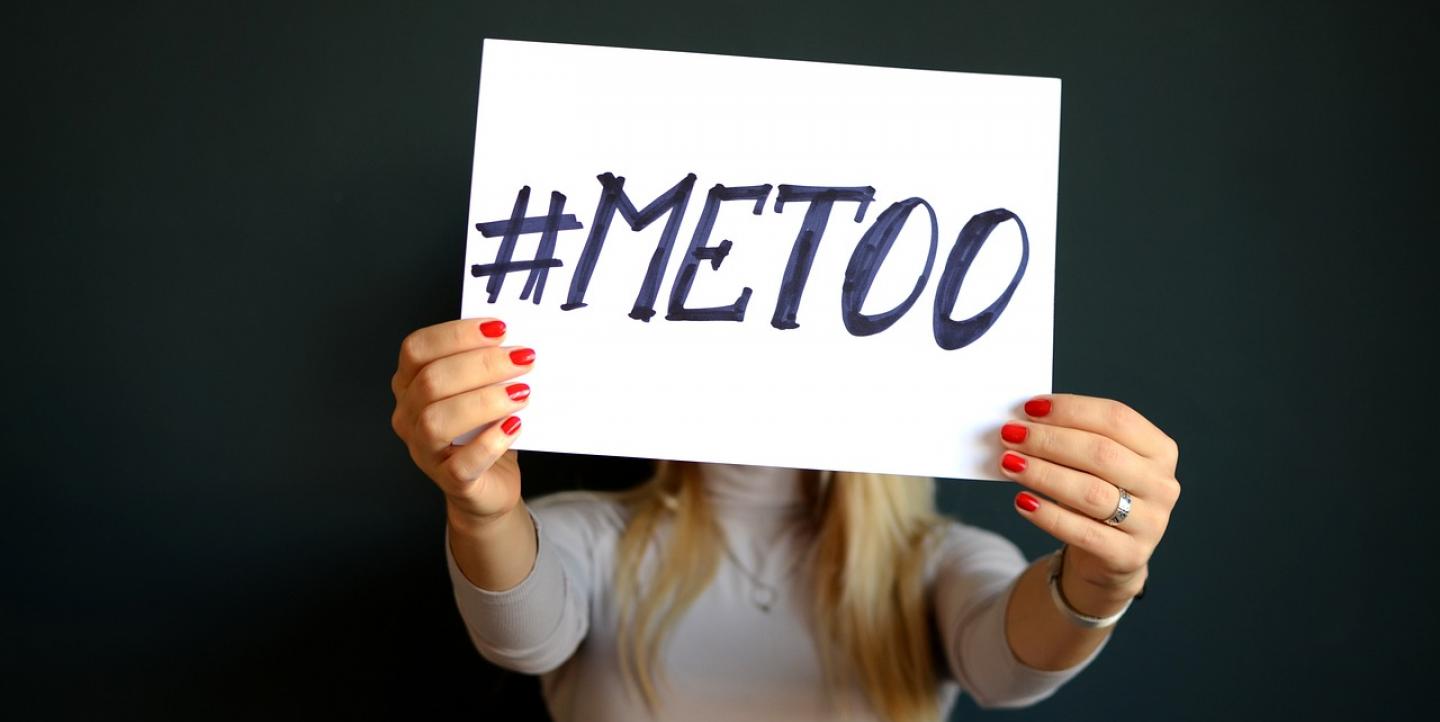What began as a conversation on a Facebook page has quickly developed into a nationwide movement against sexual harassment in the newsroom. A team of 13 current and former journalists launched Press Forward on March 13 at an event at the National Press Club in Washington.
The group connected in early September as the #MeToo movement unfolded and they took to social media to share their experiences.
“Some people really wanted a support group,” said Dianna Burgess, London-based communications professional and one of the organization’s founders. “[However] the 13 of us felt it was really important to do something, to make something positive come out of something that wasn't a positive experience.”
Although the group of founders is diverse in age, race, sexuality and geography, they were united by their background in media and desire to create change, said Burgess.
Another member of the group, Eleanor McManus, spent more than 10 years working for CNN, beginning when she was 22 years old. When the Mark Halperin story broke, she publically shared her own experience, but wanted to do more.
“We realized we had a group of talented current and former reporters and producers who went into the field to make a difference — to help tell a story,” said McManus. “United we can make a difference and help future aspiring journalists.”
The founders quickly moved outside the Facebook group, brainstorming ways to implement tangible changes. They relied on email, social media and conference calls to do most of the planning.
The organization announced its formation the same day that Time Magazine announced “the silence breakers” as this year’s Person of the Year, which inspired a lot of interest and support in Press Forward.
However, it was important for the organization’s founders to set clear goals and strategies before other people got involved. “We really wanted to get things organized in a way that made sense,” said Burgess.
By March, they had a clearly defined mission statement: “To create a safe work environment and elevate the stature of women in the workplace, beginning in the newsroom.”
Many of the women met for the first time at the launch event, which featured speakers, announcements and panel discussions. Panelists included founders and members of their advisory board, including Ted Koppel, Jake Tapper and Sara Just.
Although some of the comments by panelists were provocative, Burgess thought they were handled well and demonstrated that people can disagree on issues while still working toward the same goal.
Press Forward’s strategy breaks down into four main components: creating innovative sexual assault trainings, conducting newsroom culture assessments, creating an industry blueprint for enacting change and defining best-practice standards.
Through a series of panel discussions, educational events and outreach at journalism schools, Press Forward also hopes to educate and train employees — from managers to interns — how to deal with problems in the newsrooms as they arise. They will work alongside the Poynter Institute to develop new training guidelines for newsrooms.
“Most media organizations don't even do sexual harassment trainings,” said Kelly McBride, vice president of the Poynter Institute. “Of the trainings that exist, most seem ineffective. We want to develop a training that is rooted in the core values of journalism. Rather than tell people to behave themselves, we want to teach leaders how to build a more equitable newsroom.”
Burgess said their biggest initiative will be to conduct a large, six-month study across newsrooms around the country in order to better understand the culture and make data-driven recommendations.
“More research about the status of female journalists and the conditions under which they work is needed,” said Elisa Lees Muñoz, executive director of the International Women’s Media Foundation (IWMF), who is partnering with Press Forward on the initiative. “Without facts and figures to back up the anecdotal evidence we have heard over the years, it becomes difficult to impart the impact of the problem and to propose solutions.”
Press Forward currently accepts donations, but they are still looking for more funding. So far, all the work has been volunteer, and upcoming projects — such as hiring experts to conduct a study — requires steady income.
McManus said she is concerned that the movement against workplace harassment will lose momentum, but that they continue to schedule events to keep the conversation at the forefront of people’s minds.
They have upcoming panel discussions in Washington and New York, have made appearances at universities and share resources through their website and social media.
“It really is just changing the starting point,” said Burgess. “I know this sounds so simple and basic, but what if the starting point is that if a women has an issue or problem, that she can go to somebody that she can trust, and she will be believed?”
Main image CC-licensed by Pixabay via surdumihail.


